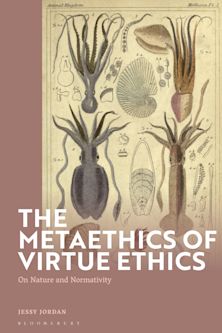- Home
- ACADEMIC
- Philosophy
- Ethics and Moral Philosophy
- Karl Marx’s Ethics of Human Flourishing
Karl Marx’s Ethics of Human Flourishing
For information on how we process your data, read our Privacy Policy
Thank you. We will email you when this book is available to order
You must sign in to add this item to your wishlist. Please sign in or create an account
Description
How did Karl Marx's moral views inform his views on capitalism? This book argues that Marx developed an ethic of character development and human flourishing that resembles but also diverges from Aristotle's, taking a critical attitude toward reified hierarchies.
Marx's derisive writings about “moralism” and “moralists” have often been read as a rejection of the value of moral and ethical reasoning, but Karl Marx's Ethics of Human Flourishing shows how the ethical problems Marx mentions function as a totality. Unlike Aristotle, for whom human flourishing was reserved for the elite, Marx draws from Hegel and later Darwin to argue that the function of human nature is influenced by historical context and class status: humans remake their world and themselves through their labor. His early work focuses on alienation and its deleterious effect on individual development, freedom, and wellbeing, while his later works elaborate on this through his theory of exploitation. This leads Marx to endorse the moral position of the working class in favor of shortening the working day, increasing wages, and improving labor conditions with an eye to abolishing capitalist labor relations altogether. Marx's approach to ethics can provide a useful basis for current social movements that are concerned with overcoming economic and social inequalities and alienated social conditions.
Table of Contents
Acknowledgements
Introduction: Marx's Working-Class Ethics of Human Flourishing
Chapter 1: Alienation and the Human Condition in the 1844 Manuscripts
Chapter 2: Alienation and Human Flourishing
Chapter 3: The Ontology of Capital, the Commodity Fetish, and its Humanist Themes
Chapter 4: The Dialectic of the Working Day (PLEASE CONFIRM THIS IS CHAPTER 4)
Chapter 5: Edification, Solidarity, and the Society of the Future
Chapter 6: Moral Tragedy in Marx
Chapter 7: The Meta-ethics of Engels (and Marx)
Chapter 8: Marx on the Strengths and Contradictions of Class Morality
Conclusion
References
Index
Product details

| Published | 05 Feb 2026 |
|---|---|
| Format | Ebook (PDF) |
| Edition | 1st |
| Extent | 312 |
| ISBN | 9798216251026 |
| Imprint | Bloomsbury Academic |
| Publisher | Bloomsbury Publishing |


































